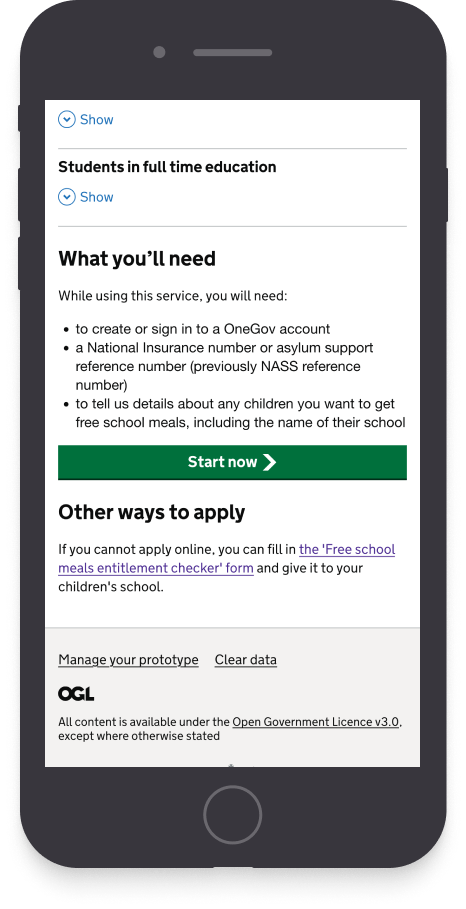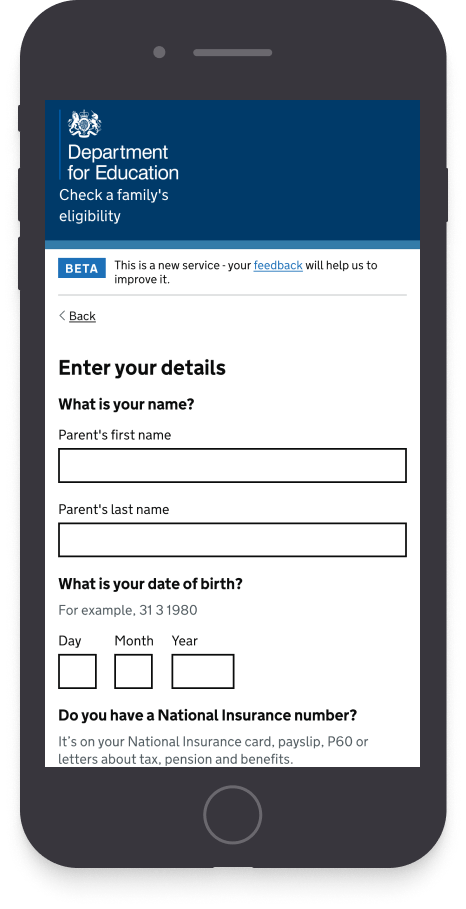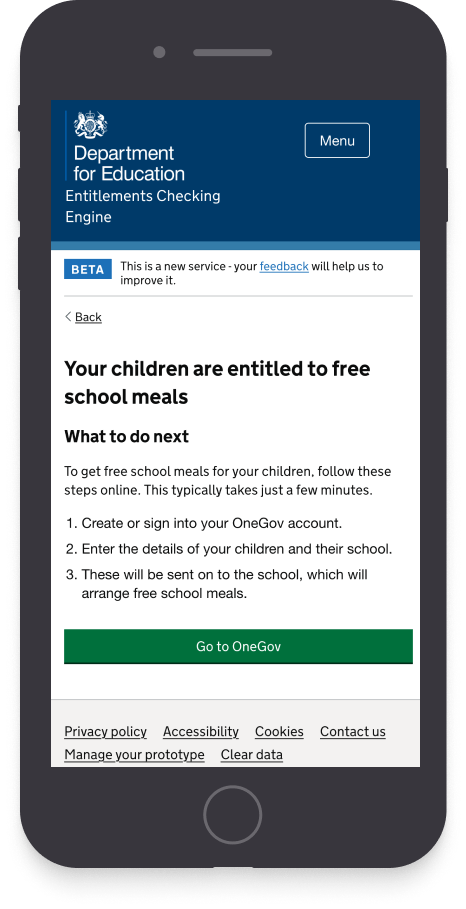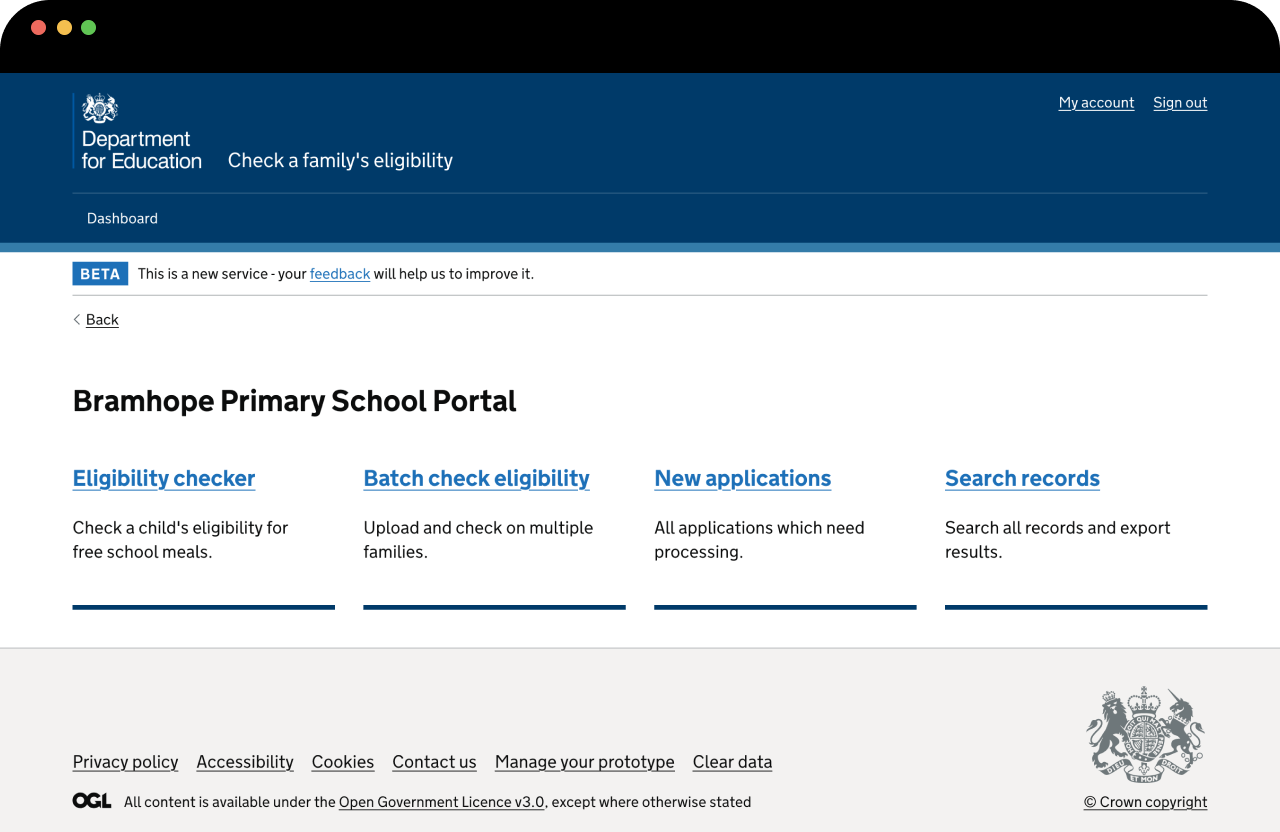Transforming the Eligibility Checking Service
Simplifying free school meal access for families
Situation
The Department for Education (DfE) aimed to improve the Eligibility Checking Service (ECS), which helps families, schools, and Local Authorities (LAs) determine eligibility for entitlements like Free School Meals (FSM).
The existing system was outdated, especially for parents with limited English proficiency or access to digital tools. With a focus on streamlining the application process, the DfE wanted to make the system easier for all users while preparing for potential future policy changes.
Task
The objective was to test a new application journey for FSM, addressing the needs of diverse user groups, including families who are often "offline" and rely on non-digital forms of support.
Additionally, schools and LAs required tools to promote FSM uptake, manage the process, and handle cases where appeals were necessary. Feedback from these user groups would shape the design and functionality of the system.

Action
Conducted usability testing and research with families, particularly those with low digital literacy, using a storyboard and an offline application form.
Designed a simplified "Check now, apply later" flow, allowing parents to check FSM eligibility before creating an account and submitting school details.
Iterated on feedback from schools and LAs, including removing appeals-handling functionality from schools and focusing on improving reporting features for LAs.
Collaborated with Local Authorities in workshops to address their concerns, focusing on streamlining data export and reporting tools.



Result
Families responded positively to the simplified "Check now, apply later" flow, though they requested more support and clearer communication throughout the process.
Schools welcomed the new FSM portal, seeing efficiency gains in promoting FSM, but requested the appeals process remain with LAs, which was implemented in future versions.
Local Authorities appreciated new tools like data export and the ability to monitor FSM uptake in schools, although initial resistance to changing processes was overcome through collaboration.
The project continued to evolve based on feedback, with plans for further iterations to improve privacy, data protection, and user support systems in the next phases.
